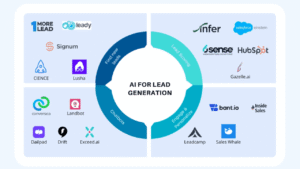Alibaba has expanded its open-source AI portfolio with the launch of Wan2.1-VACE, a unified video creation and editing model designed to streamline what traditionally requires multiple disparate tools into a single framework. Released on May 15, 2025, as part of the broader Wan2.1 family, VACE (“Video All-in-one Creation and Editing”) promises end-to-end support for text-to-video, image-to-video, reference-based editing, fine-grained repainting, and canvas expansion—capabilities that Alibaba claims are industry-first in an open-source package. By democratizing access to advanced video workflows under an Apache 2.0 license, Alibaba aims to empower individual creators and businesses alike to generate and refine high-quality visual content more efficiently and cost-effectively.
Key Features of Wan2.1-VACE
Unified Multimodal Inputs
-
Text, Image, and Video Prompts: VACE’s Video Condition Unit (VCU) ingests text descriptions, still images, or video clips to guide generation and editing tasks, offering flexible starting points for diverse creative scenarios.
-
Context Adapter Architecture: A specialized module injects spatial and temporal task representations, enabling coherent manipulation of video over time and space.
Comprehensive Creation and Editing Tools
-
Reference-to-Video Generation (R2V): Automatically animate characters or objects from user-provided images, complete with pose transfer, motion control, and depth adjustments.
-
Masked Video-to-Video Editing (MV2V): Selectively add, modify, or remove elements in existing footage without affecting surrounding areas, preserving background integrity.
-
Canvas Expansion & Inpainting: Extend a video’s frame dimensions seamlessly by generating new content that matches style and context, useful for adapting vertical videos to widescreen formats.
Fine-Tuned Control and Quality
-
Video Repainting: Transfer visual attributes—such as color grading or stylistic overlays—from reference frames to target videos, facilitating advanced color corrections and stylizations.
-
Multi-Variant Outputs: Generate multiple variations per edit, reducing iteration cycles and enabling rapid A/B testing for marketing, social media, and creative teams.
Strategic Implications for Enterprises
Accelerating Content Production
By consolidating generation and editing workflows, enterprises can reduce toolchain complexity, lowering operational overhead and speeding time-to-market for video content across marketing campaigns, e-learning modules, and product demonstrations.
Democratizing Access for SMEs and Creators
Open-source distribution under Apache 2.0 removes licensing barriers, allowing small businesses and independent creators to leverage models with up to 14 billion parameters on consumer-grade GPUs—facilitating high-quality video production without prohibitive infrastructure investments.
Collaboration and Customization
Model weights and code are publicly available on GitHub and ModelScope, and integrations with Hugging Face simplify adoption into existing MLOps pipelines. Teams can customize or fine-tune VACE for domain-specific aesthetics or compliance requirements, fostering innovation in sectors like entertainment, education, and retail.
Closing
Wan2.1-VACE represents a significant step toward unifying video creation and editing under a single, open-source AI framework. For technology and AI leaders, adopting VACE can drive efficiency gains, reduce total cost of ownership, and unlock new creative possibilities. Looking ahead, enterprises should evaluate how integrating VACE into their media pipelines can streamline workflows, support rapid content iteration, and maintain competitive advantage in an increasingly digital-first marketplace.









